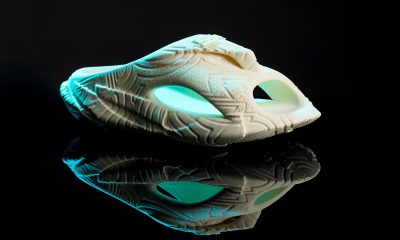Investing
Acumen’s Alzheimer’s drug passes initial safety test

© Reuters. FILE PHOTO: Dr. Seth Gale points out evidence of Alzheimer’s disease on PET scans at the Center for Alzheimer Research and Treatment (CART) at Brigham And Women’s Hospital in Boston, Massachusetts, U.S., March 30, 2023. REUTERS/Brian Snyder/File Photo
By Julie Steenhuysen
CHICAGO (Reuters) – An experimental Alzheimer’s disease drug developed by Acumen Pharmaceuticals targeting a novel form of the toxic protein beta amyloid in the brain passed an early safety test and will advance to a larger trial, the company said on Sunday.
The drug, ACI193, was well tolerated in the first trial testing it in people, the company said. Results of the randomized, placebo-controlled study of 62 patients with early Alzheimer’s disease were presented at the Alzheimer’s Association’s International Conference in Amsterdam.
Acumen’s drug targets and binds to amyloid beta oligimers, a toxic, soluble version of the amyloid protein that forms brain plaques associated with the memory-robbing disease, Dr. Eric Siemers, chief medical officer of Acumen, said in an interview.
The target is similar to that of Biogen (NASDAQ:) and Eisai’s recently-approved Leqembi, which hits another soluble, toxic form of the protein in the brain. Leqembi won standard U.S. approval earlier this month after showing it could remove amyloid plaques and slow the advance of Alzheimer’s in early-stage patients.
In the Acumen trial, 10.4% of treated participants (5 people) developed a brain swelling condition known as ARIA-E associated with amyloid-targeting treatments. Of these, only one had symptoms, which resolved after the drug was stopped.
Another 8.3% developed bleeding in the brain associated with treatment, known as ARIA-H.
“Because this antibody targets oligimers but is not intended to target plaque, we didn’t know if we would get any ARIA or not,” said Siemers, adding that the ARIA cases may suggest the drug is having an effect.
People who got higher doses of the drug also showed a reduction in amyloid plaque after 6 to 12 weeks, the company said. Acumen said the study suggests the drug can be given as a monthly intravenous infusion.
Read the full article here

-

 Investing7 days ago
Investing7 days agoMoldova breakaway region to face new power cuts on Saturday, officials say By Reuters
-

 Investing7 days ago
Investing7 days agoReebok Co-Founder Backs Syntilay’s New AI, 3D-Printed Shoe
-

 Side Hustles7 days ago
Side Hustles7 days agoHow to Survive High-Demand Seasons Without Losing Customers
-

 Side Hustles5 days ago
Side Hustles5 days ago5 Things That Could Significantly Impact Your Company in 2025
-

 Investing5 days ago
Investing5 days agoNFI Group surge after board reshaped with new appointments, chairperson By Investing.com
-

 Side Hustles7 days ago
Side Hustles7 days agoShake It Up — Dunkin’ Debuts Star-Backed Winter Menu
-

 Side Hustles6 days ago
Side Hustles6 days agoHow Failing 22 Times Paved the Way to My Success
-

 Make Money7 days ago
Make Money7 days ago9 Easy Steps to Begin Your Gold Investment Journey


















